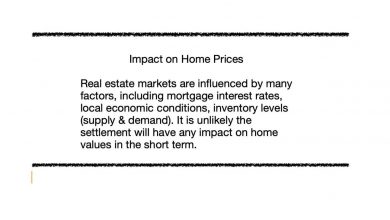The Regulatory Landscape for Cryptocurrencies: What gate.io Traders Need to Know

The Regulatory Landscape for Cryptocurrencies: What gate.io Traders Need to Know
Understanding Cryptocurrency Regulations
Cryptocurrencies have gained significant popularity in recent years, with gate.io becoming one of the leading platforms for cryptocurrency trading. However, as the industry continues to grow, so do regulatory concerns. It’s important for gate.io traders to stay informed about the regulatory landscape to operate within legal boundaries.
What is Cryptocurrency Regulation?
Cryptocurrency regulation refers to the laws and policies set by governments and regulatory bodies to govern the buying, selling, and trading of digital currencies. These regulations aim to ensure the integrity of the financial system, protect consumers, prevent fraud, and mitigate money laundering and terrorist financing risks.
Regulatory Frameworks Around the World
1. United States:
The United States has been at the forefront of cryptocurrency regulation, with several regulatory bodies involved. The Securities and Exchange Commission (SEC) classifies various cryptocurrencies as securities and enforces securities laws. The Financial Crimes Enforcement Network (FinCEN) requires cryptocurrency exchanges to register as Money Services Businesses (MSBs) and comply with anti-money laundering (AML) and know your customer (KYC) regulations. Additionally, individual states have their own regulations.
2. Europe:
In Europe, countries like Germany, France, and the United Kingdom have implemented cryptocurrency regulations. The European Union’s Fifth Anti-Money Laundering Directive (AMLD5) requires cryptocurrency exchanges and wallet providers to perform customer due diligence and report suspicious activities.
3. Asia:
Asian countries, including Japan and South Korea, have embraced cryptocurrencies while implementing regulations to address risks. Japan’s Financial Services Agency (FSA) licenses cryptocurrency exchanges and establishes stringent security measures. South Korea has also implemented KYC and AML regulations for cryptocurrency exchanges.
How gate.io Complies with Regulations
As a leading cryptocurrency exchange, gate.io recognizes the importance of compliance and takes extensive measures to adhere to regulatory requirements. Some of gate.io’s compliance efforts include:
KYC and AML Procedures
To prevent money laundering and ensure the legality of transactions, gate.io implements Know Your Customer (KYC) procedures. Traders are required to provide identification documents that verify their identity and comply with Anti-Money Laundering (AML) regulations.
Security Measures
gate.io prioritizes the security of its users and employs advanced security measures to protect against hacking and fraudulent activities. They have multi-factor authentication, encryption protocols, and cold storage solutions to safeguard users’ funds.
Regulatory Partnerships
gate.io actively collaborates with regulatory bodies to ensure compliance and stay ahead of regulatory changes. By establishing partnerships and participating in industry discussions, gate.io remains updated on the latest regulatory developments.
Frequently Asked Questions
1. Are cryptocurrencies illegal?
Cryptocurrencies are not inherently illegal. However, their legal status varies from country to country. It’s essential to research and understand the regulations specific to your jurisdiction.
2. Do gate.io traders need to complete the KYC process?
Yes, gate.io traders are required to complete the KYC process. This is to ensure the security and legality of transactions and adhere to regulatory requirements.
3. How does gate.io protect user assets?
gate.io implements various security measures, including advanced encryption, multi-factor authentication, and cold storage solutions. These measures help protect user assets from hacking and unauthorized access.
4. Can gate.io traders operate internationally?
Yes, gate.io allows traders to operate internationally. However, it is important to comply with the regulations of both the trader’s home country and the country of operation to avoid any legal issues.
In conclusion, understanding the regulatory landscape is crucial for gate.io traders to ensure they are operating within legal boundaries. It’s essential to stay informed about cryptocurrency regulations in your jurisdiction and comply with gate.io’s KYC and AML procedures. By prioritizing compliance and adhering to security measures, gate.io provides a secure and regulated trading platform for cryptocurrency enthusiasts.
Disclaimer: This article is for informational purposes only and should not be considered as legal or financial advice.



